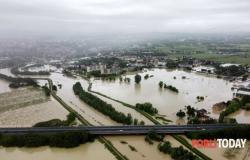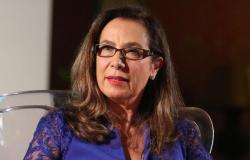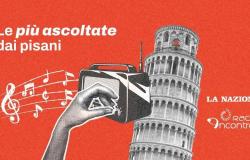BERLIN. There were two unknowns on the eve of these European elections in Germany: how much the Eurosceptic parties would gain and how much the government parties would lose. The response from the polls was the same for both: a lot. In any case, more than the polls predicted.
The traffic light coalition (social democrats, greens and liberals) loses more than 10% compared to the 2019 European elections, while the ultra-right Alternative für Deutschland (Afd) gains 5.2% and the left-wing Eurosceptics of the newborn BSW movement of Sarah Wagenknecht won 5.8%. The AfD officially becomes the leading political force in the eastern Länder with 27.1% of the vote (with peaks of 38.6% in Saxony-Anhalt), confirming the findings of recent months. While the Union of Christian Democrats of CDU-CSU returns to being the leading party in Germany with 30.2%, gaining 1.3% compared to five years ago – according to the projections of the Infratest dimap Institute. Chancellor Olaf Scholz’s Social Democratic Party drops to 14%, a point and a half less than in the last European elections, but the real collapse is that of the party of Vice-Chancellor Robert Habeck and Foreign Minister Annalena Baerbock – absent from all the stands yesterday’s television. The Greens took the heaviest toll due to German discontent with government action, receiving 11.9% of the votes (-8.6% compared to 2019). The reasons for the collapse of environmentalists are different. Over the last year and a half, the Greens have lost consensus in that “centre of society” that they had struggled to conquer in the last European elections and the last federal elections. Votes were lost – polls reveal – when Minister Habeck, with the energy crisis not yet over, i.e. in January 2023, put a law on heating in buildings on the agenda which created panic. A poorly communicated measure, with questionable timing, which scared the electorate about the possible costs, leaving a void of mistrust from which the party has never recovered. On the other hand, the base of the movement, historically pacifist, has poorly digested the sudden militarist turn after the Russian invasion of Ukraine. The only government party to win the gamble of not losing votes, despite being in government, were the Liberals, standing at 5%. “The traffic light coalition has been rejected once again,” said former CDU Health Minister Jens Spahn, commenting on the results, while CDU leader Friedrich Merz went so far as to ask for “a change of course” or the early resignation of the government.
But the real victory is that of the Eurosceptic parties: AfD and Sarah Wagenknecht’s BSW movement, which doubles Linke (2.7%) from which it separated in November. Alternative für Deutschland breaks through among young voters, becoming the most significant force among 16-24 year olds, together with the CDU-CSU, with 17%. The Chinese corruption and espionage scandals, which had recently hit the European leaders of the ultra-right party, did not in any way affect Afd’s result, in an electorate now impervious to the messages of the “mainstream” media and accustomed to find out about Telegram. The final blow was then dealt by the recent murder of a policeman in Mannheim at the hands of a young, recently Islamized Afghan emigrant. A murder that profoundly shocked German public opinion.
Even in Austria the wind from the right, the extreme one, is blowing strongly. The Fpoe, the party of Joerg Haider and former Interior Minister Herbert Kickl, stands as the country’s leading party, with 27% of the votes (10% more than 2019), in ideal continuity with the eastern Länder Germans. While Chancellor Nehammer’s popular party, the Oevp, slips to second place with 23.5% of the vote, followed in third place by the social democrats of Spoe with 23%. Harald Vilimsky, a staunchly Eurosceptic Spitzenkandidat, took the lead on the far right. The former general secretary of the party and MEP in Brussels since 2014, ran an electoral campaign focusing on corruption in the corridors of the EU, on the elephantine bureaucracy, the mass migration alarm and the unwanted war against Moscow, which takes away resources from the coffers of the state. Sensational success. This hasn’t happened since 1996.






